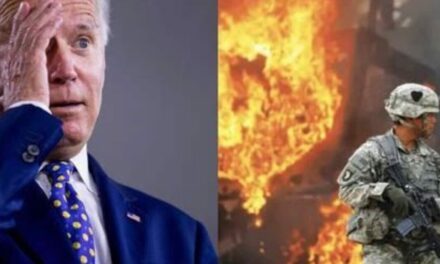We support our Publishers and Content Creators. You can view this story on their website by CLICKING HERE.
On the streets of Port-au-Prince, children as young as nine carry guns instead of school books. In a country where gangs control 80% of the capital and violence has displaced more than 700,000 people this year, minors have become the most vulnerable victims of a crisis that shows no signs of easing.
A generation lost at the hands of gangs
The situation in Haiti has worsened significantly since the assassination of President Jovenel Moïse in 2021.
Although Jovenel was part of the PHTK which focused on neoliberal policies, it is also true that he promoted foreign investments, infrastructure projects and the economic development of the country, unfortunately his administration was harshly criticized for problems of corruption and crisis management.
After Jovenel’s assassination, Haiti has not had a sitting president. The country has been under the leadership of Ariel Henry, who took over as prime minister following the assassination. Henry is a neurosurgeon and politician affiliated with the center-left, social-democratic Inite party.
In March 2024, Henry announced his intention to step down once a presidential transition council was established.
Subsequently, in April 2024, Haiti’s Presidential Council elected Edgard Leblanc Fils as its president and Fritz Bélizaire as the new prime minister.
Despite these appointments, the political situation in Haiti remains unstable, with significant challenges in terms of security and governance.
With a government that is effectively non-existent and a national police force that is widely regarded as ineffective and corrupt, gangs have filled the power vacuum, imposing a reign of terror in which children are used as bargaining chips.
According to United Nations estimates, minors now make up 50% of these gangs’ fighting forces, an increase of 70% in just one year.
Most of these minors are orphans or have been abandoned by families who cannot support them. Gangs recruit them with promises of money, gifts such as motorcycles or food.
Once inside, the options for escape are almost non-existent, as many are coerced through threats or even tattooed with the name of the gang leader, a disturbing echo of the slavery that marked the country’s history.
Child soldiers: a war crime
The use of child soldiers is considered a war crime by the International Criminal Court. However, in Haiti, this crime has become normalised in the prevailing lawlessness. “No child joins voluntarily,” says Emmanuel Camille, director of the child advocacy group KPTSL. Some are forced at gunpoint, while others simply see no alternative to survival.
The violence these children are exposed to leaves permanent scars. Those who manage to escape face an uncertain future, marked by trauma and social exclusion. Stories of redemption are rare – organisations such as KPTSL have managed to rescue a few – but the process is long and dangerous, both for the children and those who help them.
The United Nations estimates that the number of children in the ranks of Haiti’s gangs has increased by 70% in the past year.
For Haiti’s kids, servitude in gangs and potential death on the streets leave little room for a future. https://t.co/aUaW6E7ZZG
— Stars and Stripes (@starsandstripes) December 28, 2024
Girls: The invisible victims
While boys are used as combatants, girls are often sexually exploited or forced to do domestic work for gangs. “Girls are the most invisible in this tragedy,” says Mary Durran, director of the Haiti program for Development and Peace-Caritas Canada. In many cases, these girls are repeatedly raped and trapped in a cycle of abuse that is almost impossible to escape.
For Haiti’s children, servitude in gangs and death on the streets leave little room for a future https://t.co/sZHhExaAKQ
— Cherif Barsoum (@CherifBars58789) December 27, 2024
The collapse of essential services
The crisis has also devastated public services, worsening conditions for children in Haiti. Around 1,000 schools have been closed because they are used as shelters for displaced people or because gangs control the surrounding areas. In December, the pediatric wing of a prominent hospital in Port-au-Prince was set ablaze with Molotov cocktails, leaving thousands of children without medical care.
The ineffectiveness of international forces
Although the United Nations backed the deployment of an international police force led by Kenya, it has been unable to recapture gang-controlled territory or make significant arrests. Of the 2,500 officers promised, only 416 have been deployed, leaving Haiti at the mercy of the gangs as the international community debates how to act.
Haiti’s situation demands urgent and coordinated international action. However, any intervention must address the deep roots of the crisis: extreme poverty, endemic corruption and a lack of functional institutions. The international community must also ensure that children’s rights are protected and prioritized in any reconstruction strategy.
Meanwhile, an entire generation of Haitian children faces a bleak future. If action is not taken soon, the human and social cost could be incalculable. Haiti, a nation that was once a symbol of resilience and freedom, is losing its children, and with them, its future.
About The Author

 Conservative
Conservative  Search
Search Trending
Trending Current News
Current News 





